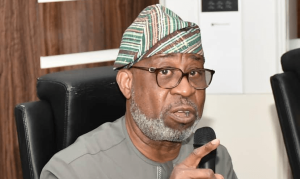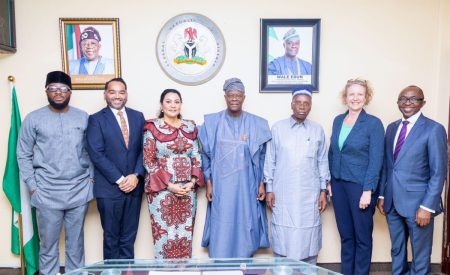
Oritsegbubemi Omatseyin
Lagos — The Minister of Solid Minerals Development, Dr. Dele Alake, has disclosed that plans are ongoing by the Federal Government to establish six mineral centres in the six geo-political zones of the country to boost the mining sector. Alake disclosed this in an interview with the News Agency of Nigeria, NAN, in Abuja.
He said the plan was part of the President Bola Tinubu administration’s commitment to diversify the country’s economy, by developing key sectors such as the solid minerals industry.
“Another one is the creation of six mineral centres in each of the six geo-political zones. We have our minerals all over the country and we cannot concentrate the mineral processing centres in one centre, and as we speak those plans are ongoing in the zones,” he said.
According to the minister, the centres are also part of the government’s commitment to promoting value addition to its minerals, aimed at facilitating multiplier effects on the economy.
It would be recalled that the minister had announced that no license would be granted to mining companies to operate without presenting a comprehensive plan for value addition such as processing and refining.
Alake said investors in the past extracted raw mineral resources from Nigeria without adding value to them, which he described as a great loss to the country’s economy.
He said: “Lithium is one of the finest qualities in the world and it has other associated minerals like nickel, cobalt and copper. So when an operator takes an ounce of our lithium out of Nigeria, perhaps he declares lithium.
“But when he gets to his host country, he now has other minerals associated with his gain and the loss of Nigeria. Hence, our major policy which we enacted is that, henceforth, we would no longer approve applications from an investor that does not show us a concrete plan for local value addition. This means processing here to add local value addition, and this will generate a multiplier effect like local employment, technology, and skills transfer.”
Alake noted that the move was in line with plans to locally produce Electric Vehicle (EVs) batteries in Nigeria, whose major ingredient was lithium.
“Our objective here is to begin to produce EV batteries with the ingredient Lithium and other associated minerals,” he added.
The minister further stated that the local value-addition policy had also been widely accepted by other African countries, aimed at developing their local economies.



